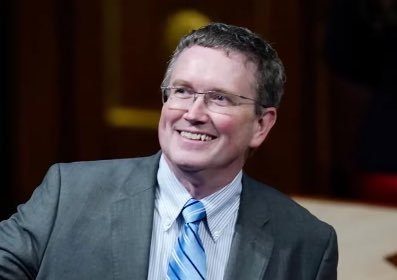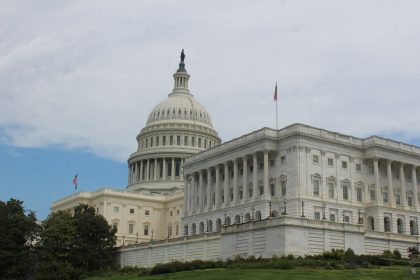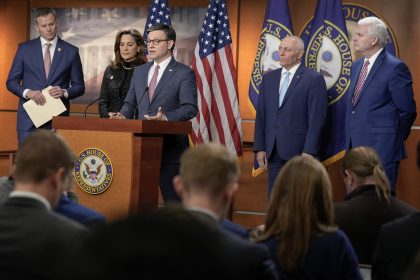Rep. Elijah Cummings Left $1 Million in Campaign Funds When He Died

WASHINGTON — The late U.S. Rep. Elijah Cummings of Baltimore left $1 million in unspent campaign funds, according to election records. That raised an unanswered question: What happens to all that money now?
In Washington, the campaign accounts of deceased and former lawmakers can legally stay active for years. Under federal election rules, the “Cummings for Congress Campaign Committee” is permitted to contribute — within certain limits — to federal, state or local candidates, political party committees or political action committees. That’s a course that many other congressional campaign accounts have taken.
But Cummings, a Democratic House leader known for his dedication to civil rights and to Baltimore, had other ideas, according to one of his chief political aides.
Before his death Oct. 17, Cummings expressed that he wanted the unspent funds donated to youth programs, such as those helping needy students pay for college, campaign treasurer Ronald Thompson said in an email to The Baltimore Sun.
The committee “is in the process of winding down operations,” Thompson wrote. “We contemplate that, in accordance with Congressman Cummings’ wishes, at the conclusion of this process, any ‘excess campaign funds’ will be transferred to educational and charitable organizations for the purpose of need-based college scholarships and youth leadership programs.”
Cummings’ plan for the leftover funds is unusual, said Noah Bookbinder, executive director of Citizens for Responsibility and Ethics in Washington, a nonpartisan watchdog group.
“My sense is there is a whole range of ways these funds are used after someone passes away or is retired,” Bookbinder said. “Sometimes they are refunded, sometimes they go to PACs, sometimes they go to charity. But it’s rare for this amount of money to go for this purpose. It’s a credit to Rep. Cummings, who was always a person of integrity.”
Thompson declined to address how or when Cummings communicated his plan to the committee, which organizations will receive money, or whether any funds could be directed for purposes not tied to youths. Such committees are permitted to pay staff salaries and other expenses. Cummings’ widow, Maya Rockeymoore Cummings, said it would be premature to comment on the leftover funds, and the committee’s political director, Carla Farrington, said the campaign had “no further comment on this matter.”
Cummings “was very dedicated to furthering higher education for students,” said Emily Braverman, program coordinator for the Elijah Cummings Youth Program. The 20-year-old program, which has more than 200 alumni, offers leadership training and is designed to build bridges between African American and Jewish communities.
“He made it a point to come back to Baltimore and interview every candidate,” Braverman said.
At the time of his death, Cummings’ family asked that donations be made to the youth program, Morgan State University in Baltimore or his alma mater, Howard University in Washington.
Cummings had $1.05 million on hand as of the last available report to the Federal Election Commission on Sept. 30. Forty-eight% of the money came from individual contributions of more than $200, 42% from political action committees or from other candidates’ committees, and the rest from small donors, according to a breakdown by the nonpartisan Center for Responsive Politics, which analyzes campaign spending.
Under federal law, the committees of deceased or former lawmakers have broad discretion on how to spend money. In recent years, more than a half-dozen former members of Congress have taken advantage of election law loopholes and tapped their old campaign accounts to lobby on behalf of foreign clients, the nonprofit Campaign Legal Center and The Daily Beast reported in July.
“There’s not really too much regulation,” said Brendan Quinn, a spokesman for the Center for Responsive Politics. “We’ve seen examples of candidates who have been dead for years and the candidate’s staff is still paying themselves a full salary.”
Under the law, Cummings’ committee could give a maximum of $2,000 to another federal candidate’s primary and another $2,000 for their general election campaign, according to FEC spokesman Christian Hilland. For instance, it could donate to any of the 32 candidates — including Cummings’ widow — seeking his former seat in a special primary Feb. 4 in the 7th Congressional District, which includes parts of the city of Baltimore and sections of the counties of Baltimore and Howard. There is no limit on how many candidates it can contribute to.
The committee is entitled to keep money raised for the regular April 28 primary election that Cummings had planned to run in. But it must refund contributions earmarked for the November general election and anything donated after Cummings died.
His death left donors to that April primary with a choice. They could ask for their money back — a request the campaign does not have to solicit or grant — or leave it to the committee to spend how it sees fit. The treasurer bears legal responsibility for the funds,
Mitchell Trellis, who donated $1,000 to Cummings in September, chose the latter approach.
“I trust his staff,” said Trellis, chief executive officer of Remedy Columbia, a medical cannabis dispensary. “I think those people have the same intentions as he did, to make this place better.”
Told that Cummings had directed unspent funds to go to youth programs, Trellis replied: “This is exactly my point.”
Trellis said he is supporting former U.S. Rep. Kweisi Mfume’s bid to succeed Cummings. Mfume held the seat before stepping down in 1996 to lead the national NAACP in Baltimore.
Among the other Democrats running are Maya Rockeymoore Cummings, who is a former chairwoman of the Maryland Democratic Party; state House Majority Whip Talmadge Branch; longtime Cummings staff member Harry Spikes; state Sen. Jill P. Carter; University of Baltimore law professor F. Michael Higginbotham; and Del. Terri L. Hill, a physician.
The Republican candidates include Kimberly Klacik, who runs a nonprofit and is a member of a Baltimore County Republican Party committee; former 2nd Congressional District candidate Liz Matory, and William T. Newton, another Baltimore County Republican Party committee member.
To fill the remainder of Cummings’ two-year term, a candidate must win the special Feb. 4 primary and a special general election April 28. Any candidate seeking to represent the 7th District after 2020 must also run in the regular primary, which is also being held April 28, then win the regular general election in November for their own full term.
———
©2019 The Baltimore Sun
Visit The Baltimore Sun at www.baltimoresun.com
Distributed by Tribune Content Agency, LLC.























